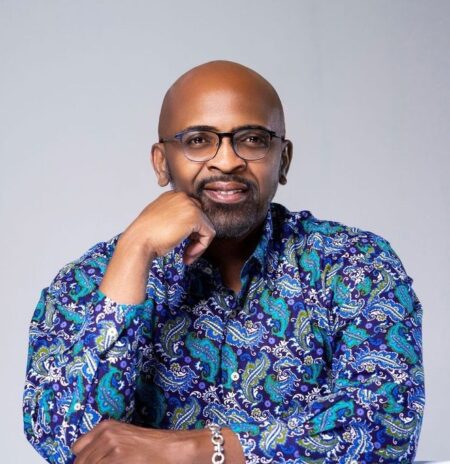Black Music Month turns 45: Celebrating a uniquely American soundtrack rooted in Black spirituality, resilience and innovation
VALLEY FORGE, PA (06/03/2024)—Since its inception in 1979, Black Music Month has grown to become a nationwide celebration of Black music. “Black music should be celebrated every single day, but it’s a concentrated period of time for us to observe the legacy, and mothers and fathers, many of whom never got paid properly or recognized or credited for their contributions,” said Dyana Williams, a music professional, journalist and advocate who helped establish the monthly recognition. “It is an economic engine for America to the tune of not a million or several million, but billions of dollars.”

Image courtesy of Richie Lugo at Unsplash
Spirituals developed as a way for people to communicate their faith, hope and fortitude in the face of unfathomable adversity. Distinguished by themes of deliverance and emancipation, strong vocal delivery and call-and-response patterns, they constitute the framework for James Cone’s Black Liberation Theology project. In ”The Spirituals and the Blues” Cone contends that, in the aftermath of slavery, it is impossible to adequately address the historically revealed actuality of God, the meaning of Black existence, or the promise of integral liberation that unites the two without keeping in mind the enslaved people’s prayer tradition and reorienting the church’s modern theology and praxis around it.
Spirituals performed by Africans held in slavery were the source of Black gospel music. Originating in the Black South, gospel music is a type of uplifting, rhythmic and spiritual music (often with biblical themes) with solo and responsive church singing. Its evolution both paralleled and contributed to the growth of rhythm and blues.
During the first part of the 20th century, many African Americans moved from rural to urban areas, bringing their worship traditions with them. The northern cities’ storefront churches, which were modeled after the one-room churches of the rural South, served as a vital setting for the growth of the Gospel. Black music has evolved into a multitude of musical genres: rumba, blues, country, rock and roll, rock, jazz, pop, salsa, rhythm and blues, samba, calypso, soul, disco, funk, ska, reggae, dub reggae, house, techno, hip hop, pop, afrobeat, bluegrass and others. It is not an exaggeration to say that Black music is at the roots of almost all musical genres that Americans listen to and recognize today.
The ubiquity of Black music raises questions of appropriation and exploitation by the white majority. Historically, the music of Black musicians and composers would be only recognized once “borrowed” by white musicians who were able to distribute music to mainstream audiences. Alabama native W.C. Handy is known today as the “Father of the Blues,” a genre that was created and performed almost entirely by Black musicians for Black audiences for decades following its emergence. The Black community was determined to preserve it as a cornerstone of their culture. But not very long after, there was a significant shift in the audiences’ and artists’ demography. The 2022 biographical movie about Elvis shows this shift, encapsulated by Elvis’s appropriation of the song “Tutti Frutti” written by the Black musician Little Richard.
The problem of white appropriation of Black music exists in church, too. The hymn “Lord, I Want to Be a Christian in My Heart” is just one of many that originate from the tradition of spirituals that are sung in predominantly white churches. The enslaved people were never paid for the music they composed, and so their descendants cannot receive royalties. Some predominantly white churches, like the United Parish in Brookline, Mass., pay symbolic royalties for the Negro spirituals they perform to nonprofits that promote young Black musicians’ development.
However, payment is just one issue when it comes to predominantly white churches performing African American music. Can they engage it in an ethical way at all?

Tony McNeill
“Music is used as a vehicle for shaping people’s understanding of who God is, and what the Christian responsibility is in response to engaging with the music,” says Dr. Tony McNeill, affiliate professor of worship & seminary musician at Columbia Theological Seminary in Decatur, Georgia, in an interview with us. “When non-African American churches want to enter into a space of discovery and experimentation with Black music, they need to ensure they have a clarity of motivation that’s not grounded in entertainment.”
For a long time, explains McNeill, there has been an artificial division that pigeonholed Black music genres as purely entertaining. On the other hand, traditionally defined classical music or sacred music have been long coded as “white.” To ensure that the use of Black music in churches is not tokenistic, it must be thoughtfully integrated into the worship. “Does the placement of that song in that service help the congregation to pray? Does this song help the congregation understand Scripture? Does this song by this Black composer help the congregation see God in a different way, or in a refreshing way that contributes to the overall conversation of the worship service?” asks McNeill, emphasizing that the theological message of the song must be integral to the service.
The second step is to seek the advice of practitioners within your city, region or church who could come to a rehearsal or sit with your music director and offer some insights into the music. “There are aspects of music above and beyond the music [sheet] itself, like there is a language. There’s an interpretive layer that’s not on the page. Nuances such as energy, intentionality, rhythm, if they are missing, the performance can become tokenized.”
The third step McNeill recommends is listening to other performances of that piece of Black music. “Especially performances that are conducted by a person of color, a person who’s skilled in that genre, a respected scholar, or practitioner or conductor, to leverage insight, and to make sure that you’re on the right path, in terms of artistry and interpretation.”
Finally, historical context may help listeners make sense of the music itself, comments McNeill. “Having a historical brief synopsis on why the song was written, who wrote it, what was going on in the songwriter’s life at the time that may have inspired the piece to be arranged or to be written, can help people to listen with a sense of depth and appreciation. It could make the experience much greater and impactful.”
As interest in Black sacred music grows in non-African American churches that advocate for racial justice, it is important that they know how to engage Black music with the respect it requires. Unfortunately, notes McNeill, in general, graduate programs focused on sacred music do not focus sufficiently on the richness, history and contributions of Black sacred music. Much improvement is needed in this area. A new summers-only master’s program (where McNeill will teach) at the University of Arkansas will offer a unique opportunity for advanced study in Black sacred music and its derivatives. It will prepare students for professional careers that involve the presentation, teaching and research of Black sacred music, which continues to evolve into new forms.
Looking into the future, McNeill shares about ongoing developments and new directions he’s seeing in Black sacred music. “There’s interest in reigniting the voice of the congregation, finding new ways to not only perform the hymns, but also teach about them. I am very, very intrigued about that. I am also seeing conversations pop up around inclusive language, especially as it relates to black gospel music, which tends to be very patriarchal, focused on the image of God as male. There are spaces where worship leaders are now taking very well-respected and very time-honored hymns and gospel songs, and playing with the pronouns, creating this opportunity for discussions.”
However, McNeill also fears that Black sacred music is in jeopardy. “We’re in the process of losing some of the sacred styles of Black song because of a generation of folks who promoted these earlier styles. They’re dying away, and there’s nobody here to carry those traditions on. And I’m speaking more specifically to the metered hymn tradition of the Black Church, which consisted of a worship leader who was educated and literate, who would speak the words of the hymn, or speak the words of a particular phrase of the hymn,” explains McNeill, “and then the congregation would retain those words, and then they would put a tune on top of those words, and sing those words that were spoken. This tradition is really vibrant in the North Carolina, Georgia, South Carolina, some parts of Florida … the Deep South. But I see it is dying away.”
McNeill is passionate about efforts to preserve this tradition. “I want us to find a way to cultivate recordings if we can do interviews with folks who are passionate about that style, so that we can keep that part of our history alive.”
As Black sacred music continues to evolve into new directions, retaining its core vitality and creativity, it also remains a wellspring of meaning and tradition. Helping us connect history and the future, it connects artistry and cutting-edge theologies of today.

